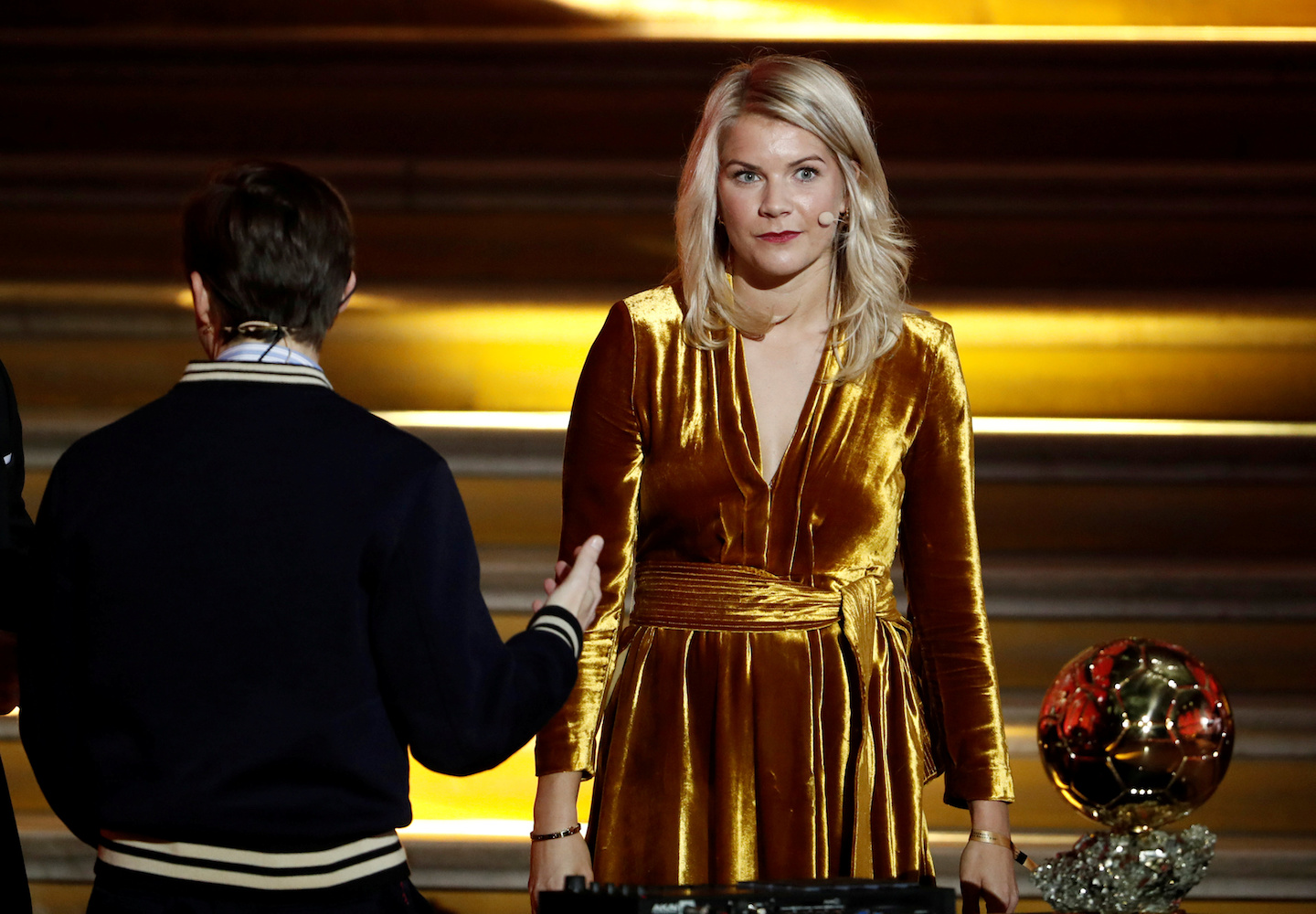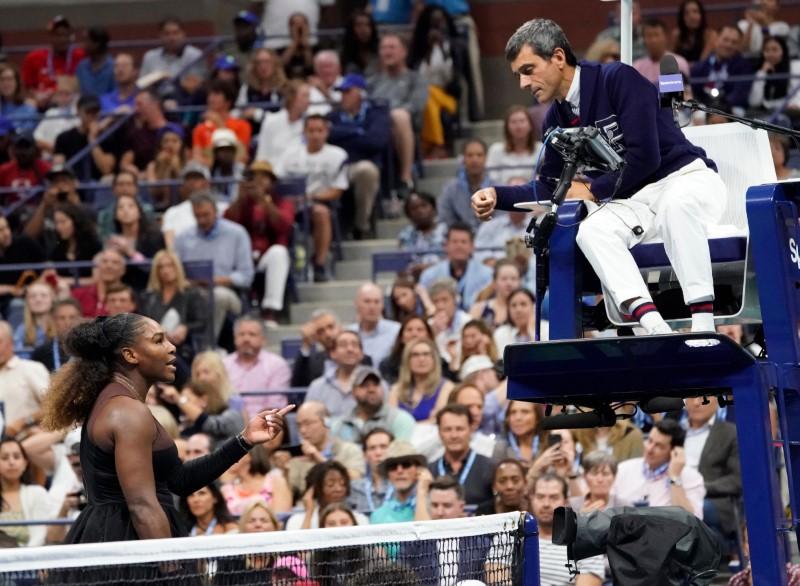
Ada Hegerberg receiving the trophy on stage at the 63rd Ballon d'Or at The Grand Palais, Paris (Photo: Benoit Tessier/Reuters)
The first ever female winner of football’s prestigious Ballon d’Or award was asked to twerk onstage minutes after receiving the prize, resulting in savage backlash from across the world.
The award has honoured male footballers throughout its 62-year history, with past winners including Cristiano Ronaldo and Lionel Messi. Lyon and Norway striker Ada Hegerberg became the first female footballer to clinch the award, beating out 14 other nominees. This year, Luka Madrid picked up the men’s award, while Kylian Mbappé was honoured with a new under-21s prize.
Right after Hegerberg picked up the throphy, French DJ Martin Solveig — who presented the award — asked if the 23-year-old could twerk. When she replied ‘no’ and turned away from the podium, Solveig was shown laughing.
Solveig immediately clarified why he made the request in an Instagram post, stipulating that it was part of his instructions to prepare a song and dance with each award winner.
Tennis player Andy Murray, a long-time campaigner for equality, immediately took to Instagram: “Another example of the ridiculous sexism that still exists in sport. Why do women still have to put up with that shit? ... And to everyone who thinks people are overreacting and it was just a joke… It wasn’t. I’ve been involved in sport my whole life and the level of sexism is unreal.”
American sports journalist Grant Wahl echoed Murray’s sentiment:
Football journalist Jason Pettigrove also tweeted this:
Solveig apologised but not without sounding like a non-apology: “People who have followed me for 20 years know how respectful I am especially with women.”
Marina Hyde from The Guardian made an excellent point. She said, “Why would you be any more respectful with women than with men, unless you thought there was something patronisably different about them? There was a classic Tom Cruise interview where the star was banging on about how he really respected women, and when the interviewer asked him what in particular he respected about them, he replied: “They smell good. They look pretty. I love them. I do.”
Sexism in sports is still rampant and you only have to look at the recent US Open final between tennis legend Serena Williams and Naomi Osaka. Umpire Carlos Ramos penalised Williams for calling him a ‘thief’, a behaviour that critics said would usually result in just a warning for other players.

In the UK, British pundit Gary Lineker was called out on Twitter for crediting Lionel Messi as the first player to have scored a World Cup goal as a teenager, despite American soccer player Mia Hamm and China’s Sun Wen achieving the same in 2003. Twitter comments from the public were even more appalling, including one that said “No way is women’s football as good as men’s game. If you’d rather watch a women’s football game over a men’s football game then you must be crazy.”
Mind you, FIFA’s own viewing figures show women were around 40% of the audience for the 2014 tournament.
Women are often thought as brash and overly aggressive when they channel rage into a clarion call to silence racism and sexism. Why should women speak in measured tones and swallow their voices to avoid being treated unfairly? Why are women constantly punished for speaking out against injustices aimed at others and themselves? Why do female athletes continue to be denigrated in the media for things other than their athletic skills?
Journalists, or award presenters in the case of Hegerberg, need to start asking female athletes the right questions and zero in on their achievements instead of viewing them only in comparison to men. Also, headlines like 'Super-high cuts, clashing colours and a LOT of crystals: The best and worst gymnastic leotards at the Rio Olympics’ need to go because we don’t need anymore articles to reduce a woman’s worth by telling how their bodies should look.
We all need to get to a point where we watch a female athlete and think: “Her performance is outstanding” and not judge by her melanin level, physique, or if she was wearing a black catsuit.


